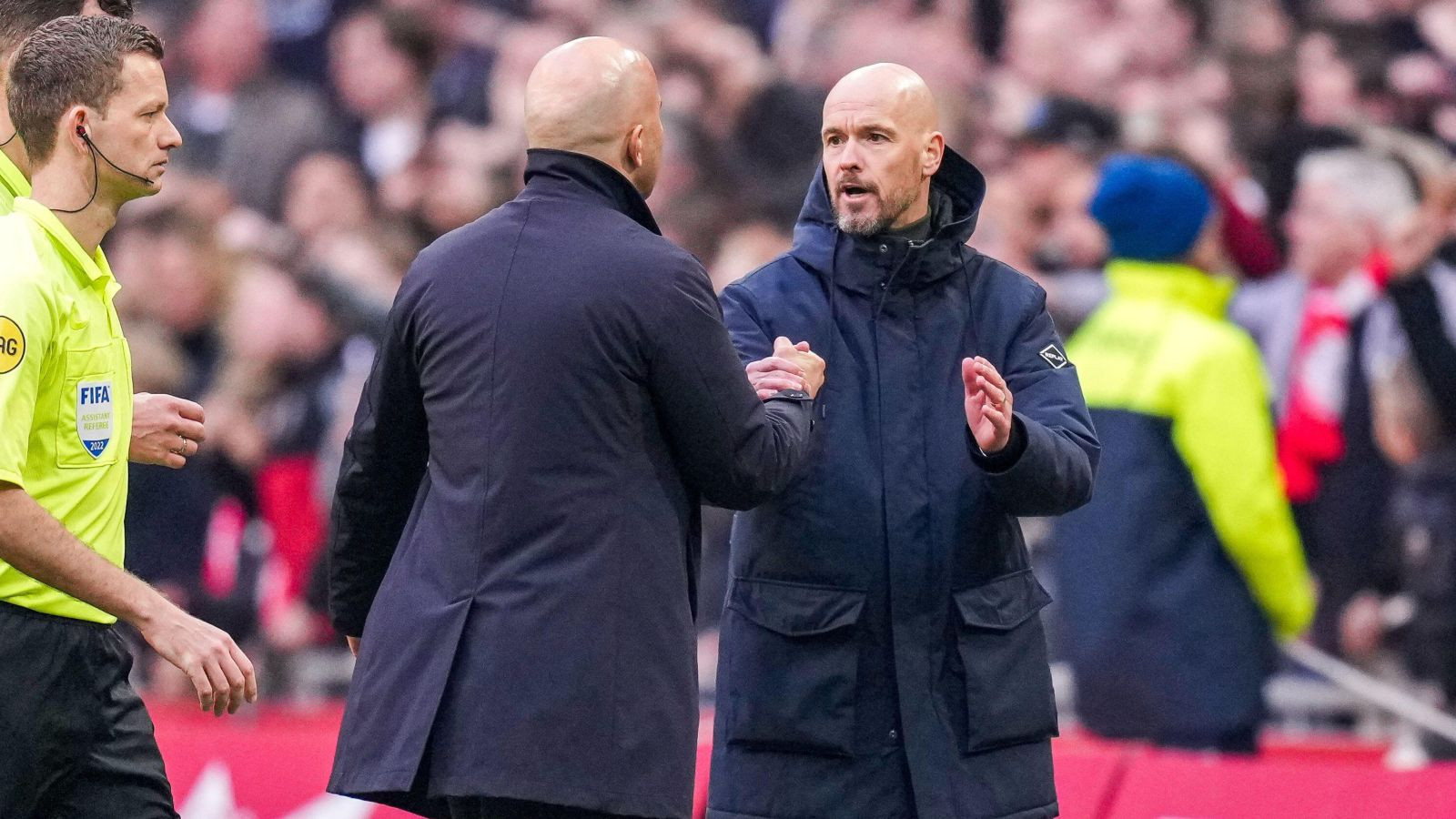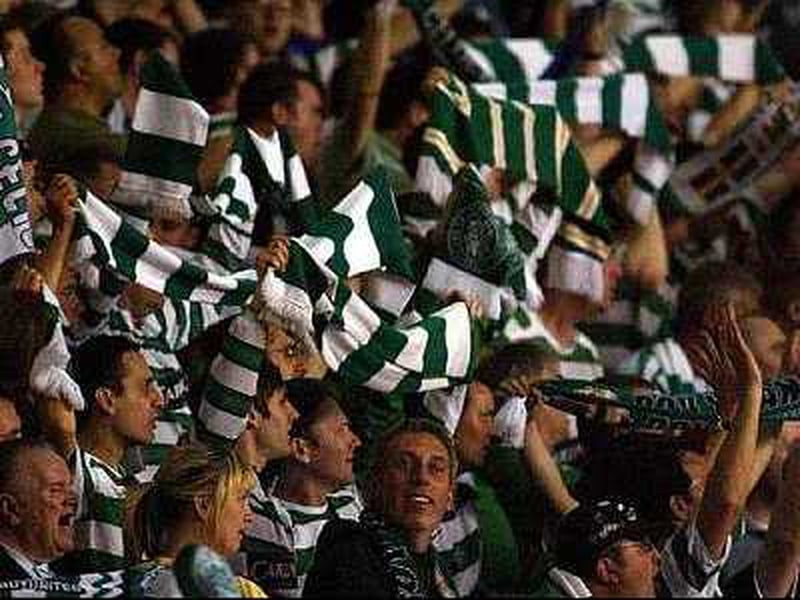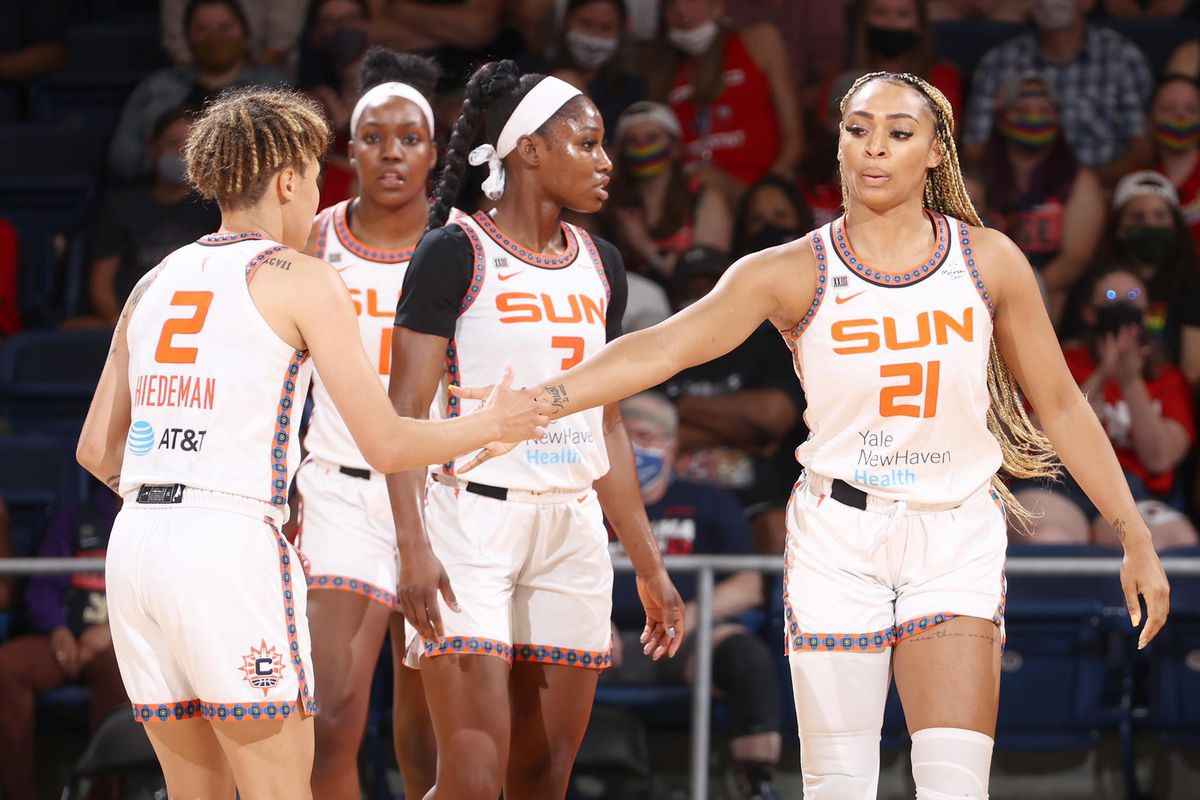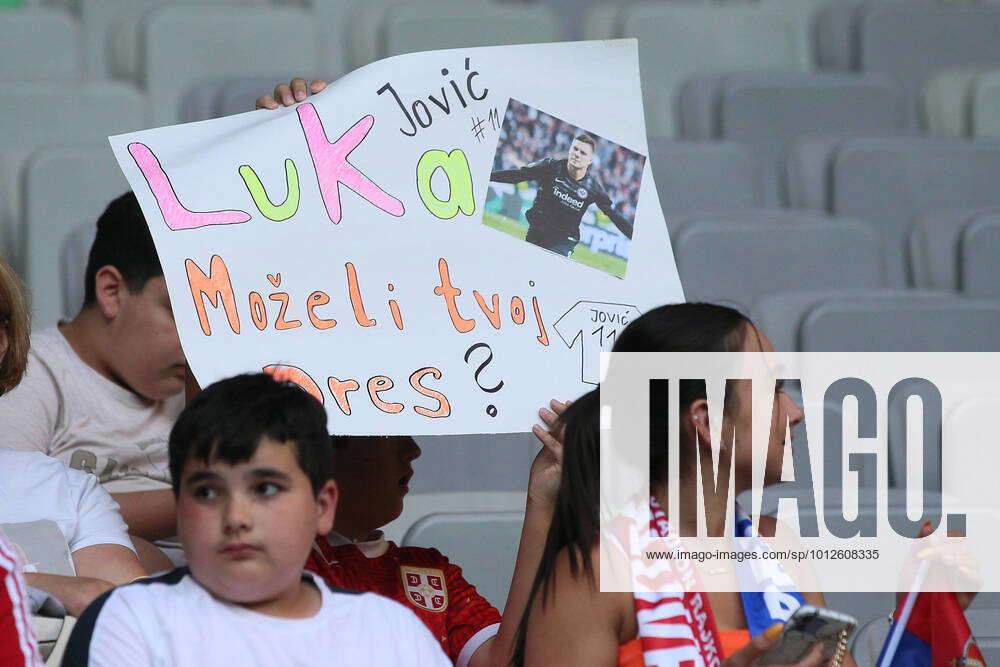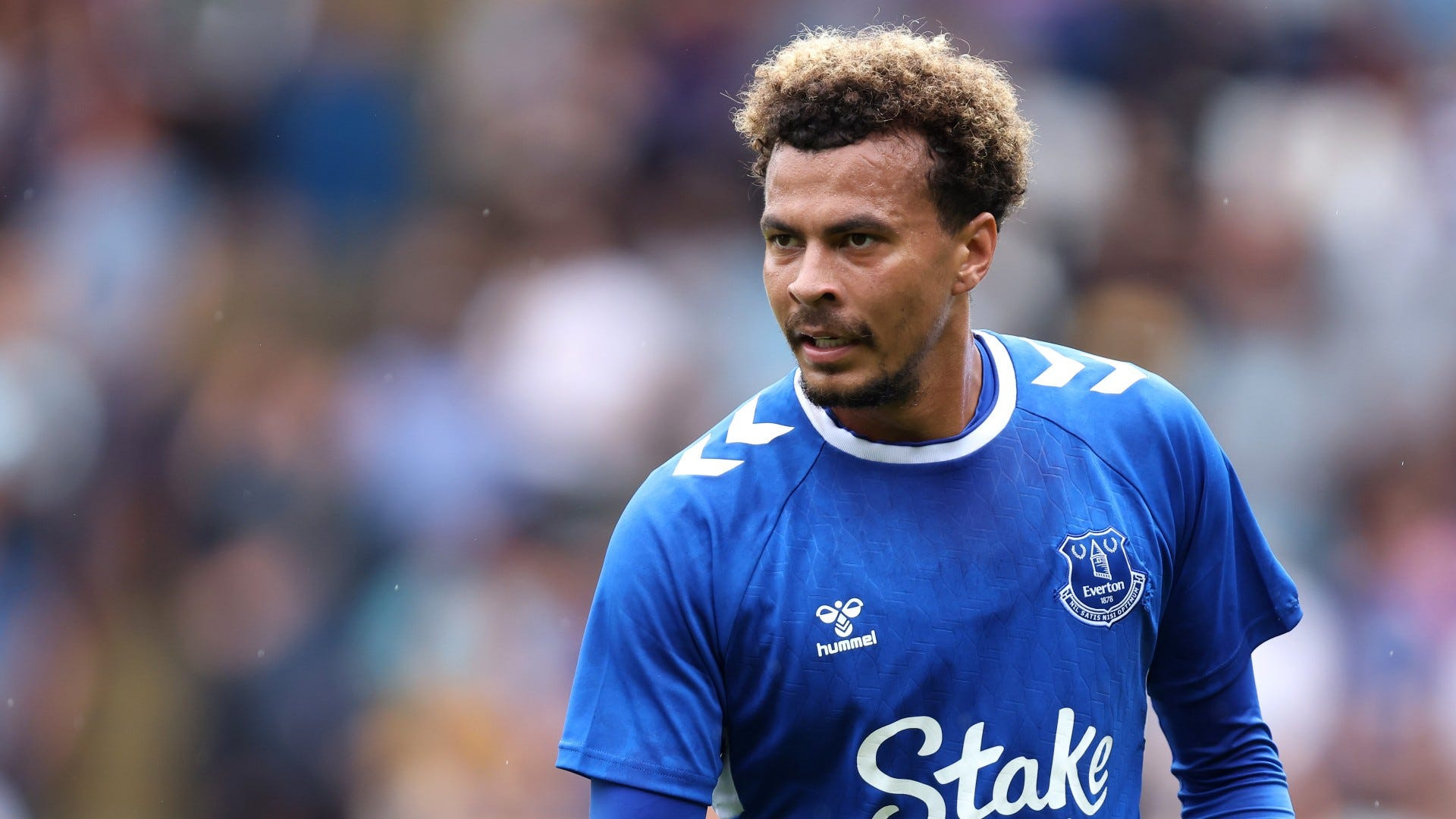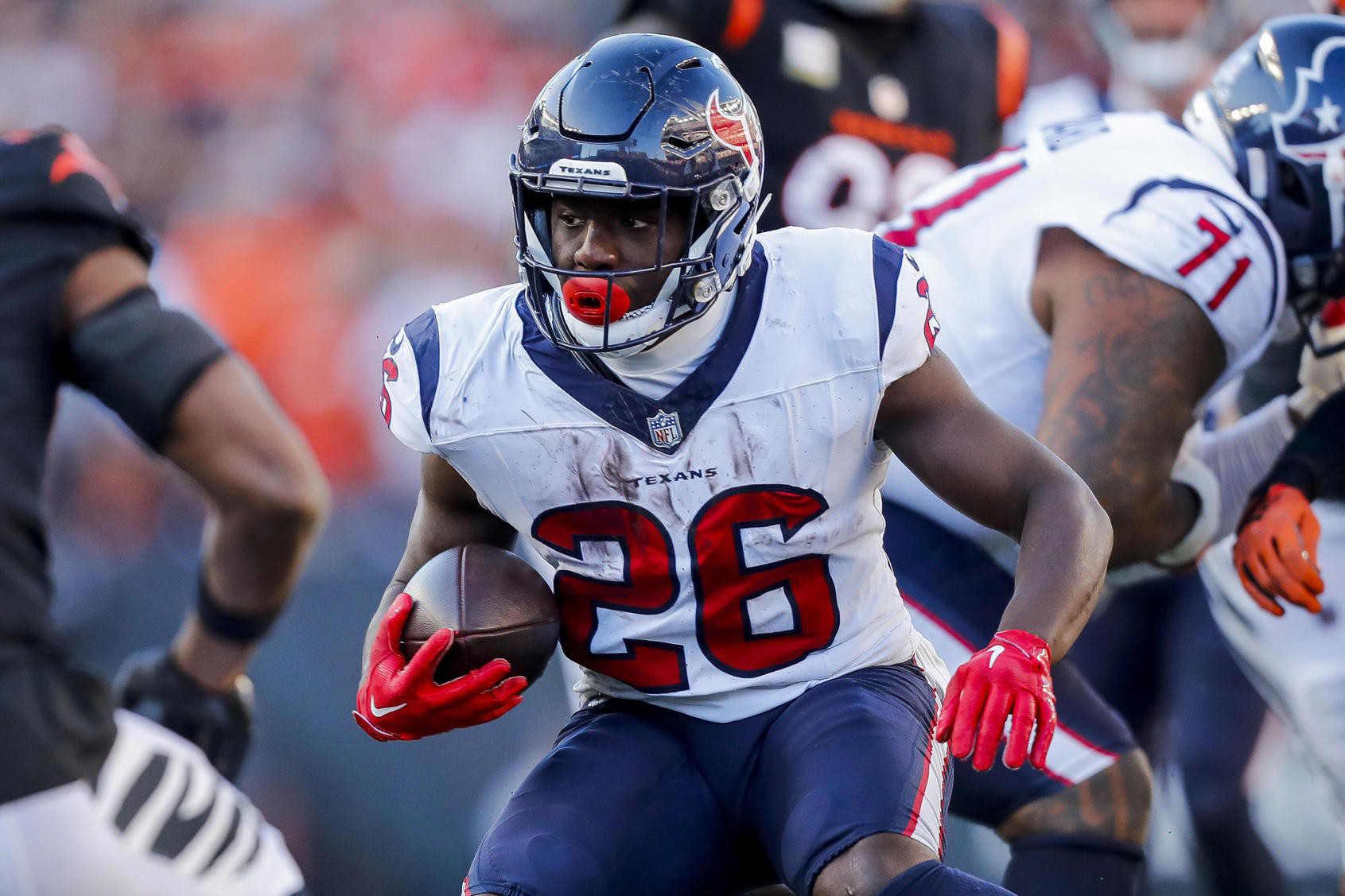In an interview room framed by a reminder of Liverpool's six European Cups at their training ground, a senior member of staff shot in ahead of a chat with Arne Slot to offer a neat summary of the new head coach.
"He doesn't do romanticism, he does wins," was said.
The 45-year-old, off to an unblemished start, co-signed those words by dropping the shoulder on any emotive approach heading into the Super Sunday showdown with Manchester United, live on Sky Sports.
Slot believes poetry happens on the pitch, not in front of the press. He wants supporters to be seduced by Liverpool's football, not his soundbites.
He possesses a pragmatism that has stretched to the team's playing style, with discipline and control off the ball significantly elevated.
He tells Sky Sports News the showdown at Old Trafford is where the real measurement of his Liverpool side begins.
Arne Slot: The New Era at Liverpool
Arne, two wins from two. One of the most notable elements so far is the amount of control Liverpool have out of possession. Has that been one of your key changes to introduce?
It's been a good start, but I said it after the game against Brentford that we have to understand the competition we faced. Brentford and Ipswich are two really good teams so I want to respect them for what they did, and we had a really hard time playing them.
But I'm not expecting them to be in the top six, so we have still a lot to prove. And if you talk about control, going to Old Trafford is one of the difficult places to have control. And even if you have control, they can still counter-attack you in every moment.
So it's going to be a big test for us if we can manage to do similar things we did against Ipswich and Brentford on Sunday. It's been a good start but with the upcoming fixtures we will see where we exactly are, and hopefully we can show the same and if not, we're going to work really hard to manage doing the same in other big fixtures.
I can tell standards are obviously very high because you don't want to get carried away, but it must be comforting to know the team have adjusted so quickly to your demands. There's not a massive change in style, but there are differences they've cottoned on to quite quickly…
Yeah. But I think the main reason for this is that there are much more similarities between the former style and the current style than there are differences.
And it would be completely normal that there are new things. Even when if Jurgen [Klopp] would've stayed, he would've implemented new things. So football is evolving or is changing. You always try to find new ways of surprising the opponent.
But the thing we did is we kept a lot the same. And then that's why it's also not so difficult for the players to understand what we asked from them. It's just asking consistency over and over and over again.
We're not asking that many new things. We're only asking from them the things they already did well, to not do it six out of 10 times, but to do it 10 out of 10 times.
That's the ideal world: that they will do it 10 out of 10 times and that's what we are working for every day. And that's also what's going to be necessary if you play United because if you are one second or one minute not switched on, they can hurt you in a counter-attack. So we need to be ready.
Slot's Vision: A Modern Dutch Take on the Premier League
Has build-up been different this week given the fixture?
I already felt after Brentford that the players are looking forward to playing this game. But if we would do this week completely different, if the players were completely different for this game than for the other ones, I think they wouldn't do justice to all the other matches we play.
So yes, we know the importance of this game but it would be strange if we would've acted this week completely different to all the other ones because that would not be a good thing as well.
You've mentioned counter-attack with reference to Manchester United a few times. Is that the big focus of guarding against on Sunday?
No, I think they have many threats, but one of them is the counter-attack. So we were talking about control and if you talk about control, one of the things you want to prevent is the counter-attack. So that's why I use the word counter-attack a few times, but United has much more weapons than only the counter-attack this season. So but we will prepare the team for that. And let's see how it works out.
Erik ten Hag has been very complimentary of your start as Liverpool manager and the way you see football - have you guys encountered each other?
We did a few weeks ago with the managers' meeting. We saw each other. When we were in Holland we met each other once in a while as well, but not in a way of going out for lunch or dinner together.
But when you play each other, you talk to each other and you get to know each other bit by bit, better and better. And I know Erik but not good enough to say anything about his private life or I don't know how he works. I do know how his teams play, of course, but that's what I know from every manager that I face in the next few days.
You spoke about private life there - have you had a chance yet to personally acclimatise to Liverpool, the city. Any favourite spots to go?
I would almost say if you're the manager of Liverpool, you don't have a private life, but that's a bit exaggerated. Next week I will go back to Holland for a few days, I think and then I will feel private life again. Over here, my private life is mostly in the inside of my house.
And sometimes I've been to a few restaurants, so it's been good. And I like what I'm doing, so I came over here not to enjoy my private life, but mostly to enjoy my life being a Liverpool manager and that's why I'm here. And I've enjoyed this until now a lot.
My private life - especially when my family comes over, then that will be better. But at this moment I'm on my own because they are on holidays, but this will come in the upcoming weeks and months.
You would've had a perception of what being Liverpool manager is like before walking through these doors. Is it how you imagined it to be?
I'm not the type of person that the night before thinks 'oh, how am I going to feel tomorrow' with Anfield for the first time, or the first time coming to this building, or Old Trafford…
Has the attention been different?
I don't feel this massive media attention since I'm here, to be honest. And maybe that will come with losing. So we have to wait and see and hopefully it's going take a lot of time before that's going to happen.
You've joked about the focus on transfers and I'm getting the sense that you are the type of manager that prefers to get improvement on the training pitches as well rather than always looking for solutions in the market?
There are two ways of improving and strengthening the squad, and one of them is absolutely on the training pitch. And the second one could be bringing in new players, but I said many times before, it's not so easy to bring in players of our standards at this club because the players I already have are from a really high standard.
Almost every position we have double in, so there's not much need for us to do a lot in the market, and only if we see there's a real good chance for us to improve the team and the player wants to come to us, then we act. And I've been very happy until now with the players I have, and I think they've earned this trust in the first two games.
On that point of having cover in almost every position. Is it then hard to try and keep all the players happy and share the minutes around? We had the incident with Trent Alexander-Arnold, is it a difficult situation to try and make sure everybody is as happy as they can be?
Yeah, but that's everywhere you work as a manager, that's the most difficult thing. At this moment, I've got today 21 players I think at the training ground, and all of them work really hard and they all deserve to play 90 minutes, but unfortunately, they can't.
And then the most important thing is that everybody is accepting that I have to make the choices and sometimes I make them right, sometimes they might even be wrong, but in the end it's all about accepting the choices I make. Until now, they've done it really well.
And I think the Trent situation was not at all about not accepting my decision. It's been made bigger than it was, I think, for me at least. So everybody accepted it until now. But that also has to do with us winning the first two. And you are tested as a team and as a manager of course, much more if you start dropping points. But again, I'm hoping that's not going to happen in the near future.
A Dutch Derby: Ten Hag vs Slot
Manchester United’s Ten Hag and Liverpool’s Slot built reputations coaching two of Johan Cruyff’s former Dutch teams
If there is a directors’ box in paradise, Johan Cruyff, the architect of modern football, will surely be taking a VIP seat to watch this weekend’s Premier League “Dutch derby” between Manchester United and Liverpool.
Cruyff’s legacy hovers over a fixture that routinely attracts global TV audiences of 500 million and will this year captivate football fans in Amsterdam and Rotterdam as much as in Salford and Bootle.
United’s Erik ten Hag and Liverpool’s Arne Slot built their reputation coaching Cruyff’s former Eredivisie sides, Ajax and Feyenoord and their vision is rooted in the Dutch master’s work.
“The incredible thing with my father is it is a never-ending, beautiful story. He was a legend and immortal,” says Johan’s son, Jordi, a former director of FC Barcelona. “My father used to say, ‘my wallet and my trophies do not fit in the coffin. What am I really leaving behind?’
“What people want to see is enjoyable, offensive football – to be happy with the effort and the intent and to be proud of the team. That was the religion of my father.”
The obvious follow-up question is: which Premier League coach is the most effective disciple of Cruyff’s total football? The answer, of course, is the one Ten Hag and Slot must overtake, Pep Guardiola.
“Pep always mentions my father and we are super grateful and immensely proud for that,” says Cruyff. “Although as a family we think that he has modernised it and all the credit is his own.”
“In general, the Dutch way is to say, ‘I am not afraid to lose, I play to win’,” says Cruyff. “It doesn’t matter who it is against, or if it is an away game, if we play well, the statistics show we are more likely to win, so I want to dominate, I want to play my game, I want to be the boss on the pitch and press as high as I can.
“This is typically Dutch, but it is no longer just Dutch. It has expanded across all levels. You see it with Spain because there is an obvious synchronisation between Spain and Holland and the way Barcelona played for many, many years.
“In Germany, the champion is a Spanish coach. In France, the champion is a Spanish coach. In England, the champion is a Spanish coach. Maybe there are small details that differ, but the philosophy is there.
“My father would prefer to win 5-4 than 1-0. I think 90 per cent of coaches prefer 1-0, but he had this romantic feeling. Pep also has it, although he would prefer to win 5-0!”
Cruyff says judgements as to whether Ten Hag or Slot most closely reflects those ideals, have to be made in the context of the conditions they are working in.
“Slot has brought that typical Dutch way of playing to Liverpool,” says Cruyff. “He knows how to combine what is needed for modern football. The challenge is to bring this into a game of such speed, knowing the English way is so different.
When you look at the big leagues, Spain is more technical and England is more transitional. There are good players with technique, of course, but the games are much more about a lot of back and forth, very fast.
“On Tuesday you can have a game go one way [tactically], and on Saturday you might play a team that goes with long balls and you need a different adaptation. That is the beauty of the Premier League. But Slot is definitely ready for this step.
“Ten Hag made the step a while ago for what he did with Ajax. Ajax has always been a huge ‘export’ club. If you do well at Ajax all the markets are open. Feyenoord is also a huge club, but with Feyenoord you have to do a lot to be seen.
Feyenoord is not a team that won the league seven times over 10 years, so Slot has done very well and he made a clever decision waiting for a year when Spurs came for him and he decided to stay.”
Cruyff believes Ten Hag shares many familiar Dutch traits. The Old Trafford manager famously quizzed – or more precisely lectured – his idol Johan as a 13-year-old appearing on Dutch TV. Cruyff Jnr almost appointed the United manager when sporting director of Maccabi Tel Aviv in 2016, opting instead for the then more experienced Peter Bosz. He suggests it is now, under a “calmer” United board, that a fairer assessment of Ten Hag can be made.
“United is a club that has been waiting to make that next step up again,” says the former United winger. “It has all the potential, but it has not been easy with the ownership situation and now new people coming in. It has not been the ideal moment because sometimes you need 100 per cent stability to get the maximum from yourself and the team.
“When it is unstable it is more difficult. But now is the moment Ten Hag will really be expected to produce. People will be saying, ‘you have everything the club needs’ with stability, new people coming in and the players he has been able to bring.
“The FA Cup gave Ten Hag more time and belief. It was an important moment for him. He is bringing more players he has worked with before, so you would imagine that will bring the Dutch style he wants. From the outside, it looks like he is surrounding himself with more people who understand what he wants and expects.
“Now you have to do it, whereas Slot is at the beginning and will have more patience.”
Sitting in his plush Barcelona apartment preparing for his own return to coaching after a two-year spell as sporting director at the Nou Camp ended last year, Cruyff recognises the genetic trail from Rinus Michels to his father and every aspiring coach.
When appointed at Anfield, Slot remarked on the “expectation” at the biggest clubs to play possession football back to front, while also being open to tactical flexibility.
“If a coach stays with what was happening 30 years ago, they are already falling behind,” says Cruyff. “It is about certain characteristics to play to win and play in the opponent’s half. There are many different ways to play to win, of course.
“I am always shocked when I see some images from the World Cup in 1974. You see Holland playing the offside trap so high up the pitch and when you look at it now, it looks crazy. Seriously, look it up. What that shows is how much football is always evolving.
“I am still curious if the fans in England still prefer for the keeper to kick it long and play for the second ball. Is there still nervousness if the keeper risks too much from the back, or do the fans enjoy it? I think it depends on the club’s DNA. Now, even in the lower leagues, you see goalkeepers taking a lot of risks and I love it.
“This idea of the goalkeeper being an extra player started with my father. He did not see the keeper only as someone to stop balls. He wanted a better build-up. This was a discussion as far back as 1986-87 when Carles Busquets [Sergio Busquets’s father] was the example. My father would tell him to play 20 or 30 yards out of his area to be like [Franz] Beckenbauer.
”Then it was a huge shock to people. Now it is normal. My father also played his full-backs inside and believed in the multi-system which Pep now evolves so much. If the opponent played with only one striker, he asked, ‘why do I need four defenders?’ He would rather have more players in midfield.”
Cruyff hopes the appointment of Ten Hag and Slot to such stellar positions reflects a renaissance of Dutch coaches after a period out of fashion at elite clubs.
“I have worked as a sporting director and on the coaching side and now I would like to go back into coaching. I think it is an advantage to have both visions,” he says.
“Football goes in cycles and there was a time when there were a lot of Dutch coaches at top teams. Then it went quiet for a little while. Suddenly Portugal went up and there were a lot of Portuguese coaches at big clubs in Europe.
“To have two Dutch coaches at England’s two historical red clubs is a moment of pride for the Dutch people. It is beautiful to see and it will be a special game on Sunday.”
The Dutch Pride: A New Generation of Coaches
Sunday’s Premier League clash has sparked interest and opinion on the two managers across the Netherlands
Whenever Manchester United and Liverpool clash it grabs international attention but across the Netherlands on Sunday interest will be higher than normal. In one dugout at Old Trafford: Erik ten Hag. In the other: Arne Slot. There is an undisguised pride in their home country that two of the world’s biggest clubs have put their fate in the hands of Dutch managers.
The mood was captured this week by Marco van Basten. “It will be a fantastic match, especially as Ten Hag just lost,” the former Netherlands striker said, referring to United’s injury-time defeat at Brighton last Saturday. Can Slot, who has started with two wins from two at Liverpool, achieve something that was beyond Jürgen Klopp and beat a Ten Hag side at Old Trafford?
In 2015 four Dutch managers had Premier League jobs in Guus Hiddink (Chelsea), Dick Advocaat (Sunderland), Louis van Gaal (Manchester United) and Ronald Koeman (Southampton). But there was a need for a new, modern generation. Dutch coaches seemed to lack what their German, Argentinian and Spanish counterparts could offer.
Slot, who is almost 46, and Ten Hag, 54, are the new standard bearers. In the Netherlands at the moment Slot is held by many in higher regard and carries the greater expectation, even though Ten Hag has more trophies. Ten Hag’s first two seasons in England have shaped that. He won the Carabao Cup, FA Cup and survived an ownership revamp but they were difficult campaigns with third- and eighth-place league finishes. That he remains at United, continuing to shape the squad and staff, is regarded as a surprise in his homeland.
Ten Hag is not getting the consistency or quality he achieved at Ajax, Utrecht and Go Ahead Eagles. “If you see what he is allowed to invest, it is just very bad,” the former Tottenham player turned pundit Rafael van der Vaart said last season.
That Ten Hag brought in a lot of countrymen and acquaintances this summer isn’t regarded as wise. Van Gaal did the same at Barcelona at the end of the last century and lost credit with the public and press. The difficult circumstances at United and Ten Hag’s achievements at Ajax, where his team humiliated Real Madrid and Juventus in the Champions League in 2019, are drawn to the background a bit.
The Dutch former manager Co Adriaanse once noted that coaches in the Netherlands are regarded like cars. A dent is forbidden, even though a coach might learn how to avoid the next dent because of the first one. The Dutch want cool, new cars without scratches.
And Slot is that flashy, undamaged car. He made Cambuur, AZ and Feyenoord perform much better, but also – and this is very important to Dutch football lovers – played attractive, energetic football.
The circumstances weren’t always easy. Slot joined Feyenoord in 2021 when the club had almost hit rock bottom, in financial and sporting terms, and Ajax, under Ten Hag, were on top of the world. But after three years with Slot at the helm Feyenoord had the upper hand over their arch-rivals in almost every way.
Now Ten Hag has a dent. And there is another big difference between the pair: their media appearances. Even in the Netherlands Ten Hag struggled for a long time to come across as relaxed in front of the camera. He could stumble over his words and would quickly go into defensive mode, eyes looking everywhere but at the interviewer.
His English remains a work in progress. Slot walks around in England as if he has been coaching there for ever. In decent English he explains his vision, gives clear and honest analysis and jokes not only with journalists but with pundits such as Jamie Carragher, as if he shared the Anfield pitch with him for years.
Slot, whose father was a teacher and who is married to a teacher, is quite clever with words and anxious not to step on toes. He will more subtly point out his achievements, dropping in for example that Feyenoord were not able to get experienced players in the way Ajax and PSV were.
Slot, like Ten Hag, grew up in the more rural east of the Netherlands where big mouths are not appreciated. Ten Hag, though, has been more forthright in his media utterances lately. “If they don’t want me any more then I go anywhere else to win trophies because that is what I did my whole career,” he said after beating Manchester City in the FA Cup final.
In an interview with Voetbal International he also said people in the Netherlands were “overly lyrical” about Slot’s Feyenoord last season. But there is no real rivalry or tension between the pair.
“They are both quite relaxed before the match because they have their plan ready,” says the former Heerenveen coach Kees van Wonderen, who often crossed swords with Ten Hag and Slot. “But they are alert to what can happen. Erik is perhaps a bit more pragmatic at the moment, adapting his team a bit more to the opponent. Arne is a bit more attached to stick to the neat, attacking football that [Pep] Guardiola advocates, but he is always keeping an eye open for new trends. You saw a bit more [Roberto] De Zerbi influences last season.”
Ramon Leeuwin, who played under Ten Hag at Utrecht and Slot at AZ, says: “I’m very enthusiastic about both of them as coaches and people, and I don’t know any player who isn’t. Arne comes across very charming from the very first moment. He wins everyone over in a natural way: the media, the staff, the players. He is just very clear, good and quick-witted.
“Erik, we had to get used to in the beginning. His way of training was very tactical and training was often stopped – sometimes you felt like a PlayStation figure. But if you feel that you are improving as a team and as an individual, that you are always excellently prepared for the match, you start to believe in it. And Erik also has a very good sense of humour and is extremely loyal to people.”
Bert van Marwijk, a former Feyenoord and Netherlands coach, said in his De Telegraaf column that he could already see the style Slot wants from Liverpool. “Most trainers think that they don’t get enough time to put their signature on a team, but that’s nonsense,” he wrote.
Of Ten Hag he said: “Against Brighton I saw much less of the recognisable things about the style of play he wanted. Ten Hag is more in a phase with United of a ball that just does or doesn’t fall well. That is not yet a solid foundation.”
In the same newspaper the former striker Wim Kieft stated that Slot had a “better vision” than Ten Hag. “He demonstrably makes players better,” he said, though he warned Slot would soon see “the pressure in England is much greater than in the Netherlands”.
Ten Hag could tell his countryman all about that this Sunday.




